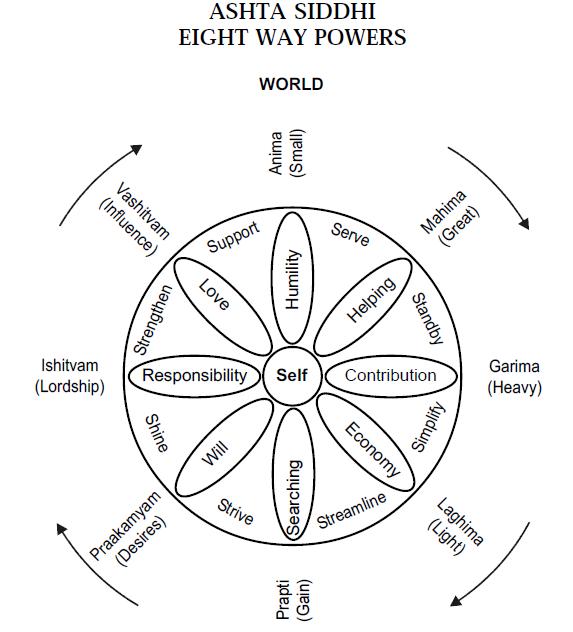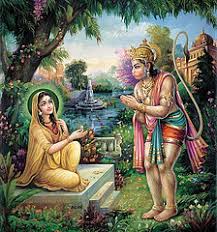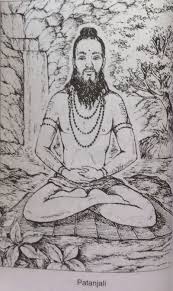#Thread on Siddhis.
The word Siddhi means attainment/accomplishment, or perfection. While in current times, Siddhi might seem like a Supernatural power, I firmly believe that everyone one of us have these abilities and potential to use them, but we’re unable to because of the
The word Siddhi means attainment/accomplishment, or perfection. While in current times, Siddhi might seem like a Supernatural power, I firmly believe that everyone one of us have these abilities and potential to use them, but we’re unable to because of the
distractions in life. However, in ancient times, people had these power and utilised it for betterment of humans. 18 Siddhars, who’re considered to be prominent amongst Siddhars are example of this fact. That is the reason I believe that in by-gone era, Siddhi meant perfection.
While today, it means attainment/accomplishment.
We have references to Siddhis in various scriptures. This verse in Hanuman Chalisa is one such example:
Ashta siddhi nava nidhi ke dātā, asa bara dīnha jānakī mātā
@Dharma_Yoddhaa @VedicWisdom1
We have references to Siddhis in various scriptures. This verse in Hanuman Chalisa is one such example:
Ashta siddhi nava nidhi ke dātā, asa bara dīnha jānakī mātā
@Dharma_Yoddhaa @VedicWisdom1
This verse talks about how Mata Sita blesses Shri Hanumanji as one who could bestow His bhakts with ‘Asht Siddhi’ (8 Siddhis) and ‘Nava Nidhi’ (9 Divine Treasures).
There are different views and interpretation regarding ‘Ashta Siddhi’, though there are also some overlap. @shri_v
There are different views and interpretation regarding ‘Ashta Siddhi’, though there are also some overlap. @shri_v
According to Father of Medicine (Acharya Charaka), one can attain 8 Siddhis by practising Yoga through pure mind and soul. The 8 Siddhis that Acharya Charaka mentions are as below:
1) Āveśa – ability to enter another person’s body
2) cētas jnānam – mind reading
@hathyogi31
1) Āveśa – ability to enter another person’s body
2) cētas jnānam – mind reading
@hathyogi31
3) arthānām chaNDAtaH Kriyā – ability to control one’s sense, objects according to will
4) dṛṣṭi – ability to see objects which are otherwise imperceptible to eyes
5) shrotram – ability to hear sound at distance or otherwise inaudible
6) Smṛti – extraordinary memory
@rspchary
4) dṛṣṭi – ability to see objects which are otherwise imperceptible to eyes
5) shrotram – ability to hear sound at distance or otherwise inaudible
6) Smṛti – extraordinary memory
@rspchary
7) Kānti – extraordinary luster
8) Ishtatah adarshanam – ability to be invisible/visible at will
As per Sāṁkhyakārikā (by Iśvarakṛṣṇa, 350 CE – who describes himself a successor of disciples from great ‘Kapilamuni’), the ‘Ashta Siddhis’ are as below:
@RajiIndustani
8) Ishtatah adarshanam – ability to be invisible/visible at will
As per Sāṁkhyakārikā (by Iśvarakṛṣṇa, 350 CE – who describes himself a successor of disciples from great ‘Kapilamuni’), the ‘Ashta Siddhis’ are as below:
@RajiIndustani
1) Uuha – attaining knowledge about tattvas involved in creation, knowledge gained by examining ‘Prakriti’ and ‘Vikriti’, based on the samskaras of poorva janma
2) Shabda – knowledge gained by association with enlightened & learned person (Guru)
@lalitha_jr @Speakwithsense1
2) Shabda – knowledge gained by association with enlightened & learned person (Guru)
@lalitha_jr @Speakwithsense1
3) Addhyayan – knowledge gained through study of Vedas and other standard established treatises
4) Suhrt Prapti – knowledge gained through discussion and sharing with good & kind-hearted friends
@AparBharat @Sanskritii_1 @Itishree001 @Anshulspiritual
4) Suhrt Prapti – knowledge gained through discussion and sharing with good & kind-hearted friends
@AparBharat @Sanskritii_1 @Itishree001 @Anshulspiritual
5) Aadhyaatmika Dukha-haan – freedom from pain, disappointment caused due to lack of spiritual, metaphysical and mystic knowledge/experience
6) Aadibhautik Dukha-haan – freedom from pain, disappointment caused due to attachment/obsessive about the materialistic/worldly pleasures
6) Aadibhautik Dukha-haan – freedom from pain, disappointment caused due to attachment/obsessive about the materialistic/worldly pleasures
7) Aadhyaatmika Dukha-haan – freedom from pain, disappointment caused due to fate or reliance on fate
8) Daanam – knowledge gained regardless of one’s need, passive knowledge gained through association with those seeking knowledge or ultimate truth
@sambhashan_in @mmpandit
8) Daanam – knowledge gained regardless of one’s need, passive knowledge gained through association with those seeking knowledge or ultimate truth
@sambhashan_in @mmpandit
Apart from what we discussed, Yogis prevalently accept 23 types of Siddhis, most of which are mentioned in the Bhagvata Purana. These 23 Siddhis can be categorised in three parts, as below:
5 Kshudra Siddhis (minor attaintments):
@Kishoreciyer1 @desi_thug1 @SachinK23579415
5 Kshudra Siddhis (minor attaintments):
@Kishoreciyer1 @desi_thug1 @SachinK23579415
1) Tri-kāla-jñatvam: Knowledge of past, present and future
2) Advandvam (non-duality): not being subject to dualities of heat/ cold, pain/ pleasure, sweat/ bitter, good/ bad
3) Para citta ādi abhijñatā: Knowing of others& #39; minds
@HelloNNewman @wataboutery @krithikasivasw
2) Advandvam (non-duality): not being subject to dualities of heat/ cold, pain/ pleasure, sweat/ bitter, good/ bad
3) Para citta ādi abhijñatā: Knowing of others& #39; minds
@HelloNNewman @wataboutery @krithikasivasw
4) Agni arka ambu viṣa ādīnām pratiṣṭambhaḥ: having fire, sun, water, poison in control and stopping their effect
5) Aparājayah: becoming unconquerable
10 Guna Pradhana Siddhis (secondary attainment based on predominant acquired qualities):
@Krishna_Priiya @VipashaRanjan
5) Aparājayah: becoming unconquerable
10 Guna Pradhana Siddhis (secondary attainment based on predominant acquired qualities):
@Krishna_Priiya @VipashaRanjan
1) Anūrmi-mattvam: Being undisturbed by hunger, thirst, and other body generated cravings
2) Dūra-śravaṇa: Hearing things/events happening very far
3) Dūra-darśanam: Seeing things/events happening very far
4) Manaḥ-javah (manojvitva): Moving physical body wherever one wants
2) Dūra-śravaṇa: Hearing things/events happening very far
3) Dūra-darśanam: Seeing things/events happening very far
4) Manaḥ-javah (manojvitva): Moving physical body wherever one wants
5) kāma-rūpam: Attaining/assuming desired form
6) Para-kāya praveśanam (vikranabhav): Entering another person’s body (spirits are believed to enter a person& #39;s physical body whose astral body is weak, but the power mentioned here is different and superior)
@Sarvavyaapi @Hiranyaa_
6) Para-kāya praveśanam (vikranabhav): Entering another person’s body (spirits are believed to enter a person& #39;s physical body whose astral body is weak, but the power mentioned here is different and superior)
@Sarvavyaapi @Hiranyaa_
7) Sva-chanda mṛtyuh: To die only on one& #39;s wish (like that of Bhishma from Mahabharat, like that of many sages who left their bodies by their own wish)
8) Devānām saha krīḍā anudarśanam: Witnessing the pastimes of demi-gods (or Witnessing the events of 3 worlds as pastimes)
8) Devānām saha krīḍā anudarśanam: Witnessing the pastimes of demi-gods (or Witnessing the events of 3 worlds as pastimes)
9) Yathā sańkalpa saḿsiddhiḥ: Achieving as one determines
10) ājñā apratihatā gatiḥ: One& #39;s commands unstopped
8 Brahma Pradhana Siddhis (Divine or classical attainments):
@Valluva_Bharati @nitish_tanha @paperrose3k
10) ājñā apratihatā gatiḥ: One& #39;s commands unstopped
8 Brahma Pradhana Siddhis (Divine or classical attainments):
@Valluva_Bharati @nitish_tanha @paperrose3k
1) Aṇimā – ability to become smaller than the smallest
2) Mahimā – ability to become larger than the largest
3) Garimā – ability to become very heavy by own will
4) Laghimā – ability to become lighter than light (levitation & flying are subsidiary Siddhis of this Siddhi)
2) Mahimā – ability to become larger than the largest
3) Garimā – ability to become very heavy by own will
4) Laghimā – ability to become lighter than light (levitation & flying are subsidiary Siddhis of this Siddhi)
5) Prāpti – ability to be anywhere at one’s will
6) Prākāmya – ability to obtain whatever one desires to have
7) Iṣiṭva – ability to have absolute power over entire creation
8) Vaśitva – ability to control physical manifestation of ‘Panch-bhootas’ – Nature
@LevinaNeythiri
6) Prākāmya – ability to obtain whatever one desires to have
7) Iṣiṭva – ability to have absolute power over entire creation
8) Vaśitva – ability to control physical manifestation of ‘Panch-bhootas’ – Nature
@LevinaNeythiri
Are these Siddhis attainable? Patanjali muni in his ‘Yogasutra’ written over 2000 yrs ago, states as a matter-of-fact, that these Siddhis are indeed attainable. In his ‘Yogasutra’ IV:1, Patanjali Muni mentions ways to attain Siddhi:
@KumarSarangapa1 @kpkarthikbabu @rsankaras
@KumarSarangapa1 @kpkarthikbabu @rsankaras
Janma auṣadhi mantra tapaḥ samādhijāḥ siddhayaḥ
The verse is explained as – One can attain Siddhi by:
Janma (Birth) – children born to parents who’re Spiritually advanced are predisposed in attaining Siddhi. One could also say that such child’s Karma from previous birth +
The verse is explained as – One can attain Siddhi by:
Janma (Birth) – children born to parents who’re Spiritually advanced are predisposed in attaining Siddhi. One could also say that such child’s Karma from previous birth +
+ helps them in attainment of Siddhi)
Aushadhi (medicines or herbs) – Usage of special herbs or medicines to attain Siddhi
Mantra (Incantations) – by repeatedly reciting mantras (hymns), one could attain Siddhi. There are hymns in Vedas which helps in this purpose.
@InfoVedic
Aushadhi (medicines or herbs) – Usage of special herbs or medicines to attain Siddhi
Mantra (Incantations) – by repeatedly reciting mantras (hymns), one could attain Siddhi. There are hymns in Vedas which helps in this purpose.
@InfoVedic
Tapah (Penance or Self-discipline) – helps in clearing the cluttered mind, with an un-perverted mind, one could gain control over 5 elements of nature, as and when they wish to.
Samādhi (oneness with consciousness) – when one achieves oneness with the consciousness@harshasherni
Samādhi (oneness with consciousness) – when one achieves oneness with the consciousness@harshasherni
Although, this is a fascinating subject and will no doubt push us to look to attain Siddhi. Patanjali muni in his Yogasutra issues a warning – in fact, he issues a warning before he talks about how Siddhi could be attained. He says:
@harshasherni @Hamainsanghihu @YoginiPratibha
@harshasherni @Hamainsanghihu @YoginiPratibha
Avoid invitations to display or identify with any accomplishments in yoga, including the siddhis, even if invited by a respected person, because this can reinforce one’s sense of separate self, leading to ego, pride, and arrogance, and this becomes an impediment toward further +
+ spiritual unfoldment. There are many ways that this trap can manifest. If personal pride or greed causes one to be seduced by the ever-present challenge of proving one’s abilities to skeptics, such as using psychic abilities to win a prize, then the power gained by that +
+ seduction is likely to corrupt the ethical restraints that are the very first lesson to learn on the eightfold path.
Also, these Siddhis were identified by our ancestors, great Rishis to help guide people towards self and Brahman realisation.
@DeshBhaktReva @Bhaktirassagar
Also, these Siddhis were identified by our ancestors, great Rishis to help guide people towards self and Brahman realisation.
@DeshBhaktReva @Bhaktirassagar
Thus, the goal should never be Siddhis, they’re but a happy by-product.
Hope you enjoyed reading about Siddhis. I am gonna repost my thread from last year on Pambatti Siddhar tomorrow.
@BesuraTaansane
Hope you enjoyed reading about Siddhis. I am gonna repost my thread from last year on Pambatti Siddhar tomorrow.
@BesuraTaansane
And with that, will revive my goal of sharing information on each of the 18 prominent Siddhars. So, consider this a prequel to what’s to come.
Have a great rest of the day and week ahead! https://abs.twimg.com/emoji/v2/... draggable="false" alt="🙂" title="Leicht lächelndes Gesicht" aria-label="Emoji: Leicht lächelndes Gesicht">
https://abs.twimg.com/emoji/v2/... draggable="false" alt="🙂" title="Leicht lächelndes Gesicht" aria-label="Emoji: Leicht lächelndes Gesicht"> https://abs.twimg.com/emoji/v2/... draggable="false" alt="🙏" title="Folded hands" aria-label="Emoji: Folded hands">
https://abs.twimg.com/emoji/v2/... draggable="false" alt="🙏" title="Folded hands" aria-label="Emoji: Folded hands">
Content Source: http://easyayurveda.com"> http://easyayurveda.com , http://consciouslifestylemag.com"> http://consciouslifestylemag.com
Pics: Google
Have a great rest of the day and week ahead!
Content Source: http://easyayurveda.com"> http://easyayurveda.com , http://consciouslifestylemag.com"> http://consciouslifestylemag.com
Pics: Google

 Read on Twitter
Read on Twitter





